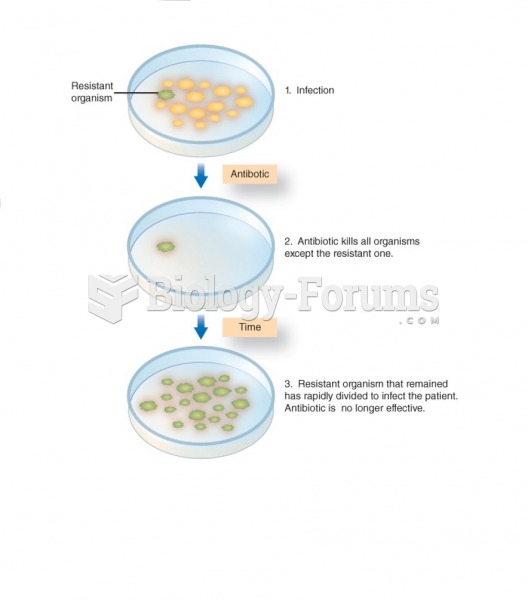|
|
|
Autoimmune diseases occur when the immune system destroys its own healthy tissues. When this occurs, white blood cells cannot distinguish between pathogens and normal cells.
Chronic necrotizing aspergillosis has a slowly progressive process that, unlike invasive aspergillosis, does not spread to other organ systems or the blood vessels. It most often affects middle-aged and elderly individuals, spreading to surrounding tissue in the lungs. The disease often does not respond to conventionally successful treatments, and requires individualized therapies in order to keep it from becoming life-threatening.
Approximately one in three babies in the United States is now delivered by cesarean section. The number of cesarean sections in the United States has risen 46% since 1996.
In the United States, congenital cytomegalovirus causes one child to become disabled almost every hour. CMV is the leading preventable viral cause of development disability in newborns. These disabilities include hearing or vision loss, and cerebral palsy.
Studies show that systolic blood pressure can be significantly lowered by taking statins. In fact, the higher the patient's baseline blood pressure, the greater the effect of statins on his or her blood pressure.
 Pill organizers can help reduce confusion and ensure that medications are taken at the appropriate ...
Pill organizers can help reduce confusion and ensure that medications are taken at the appropriate ...
 A track inside an ignition coil is not a short, but rather it is a low-resistance path or hole that ...
A track inside an ignition coil is not a short, but rather it is a low-resistance path or hole that ...
 A typical air vane sensor with the cover removed. The movable arm contacts a carbon resistance path ...
A typical air vane sensor with the cover removed. The movable arm contacts a carbon resistance path ...




